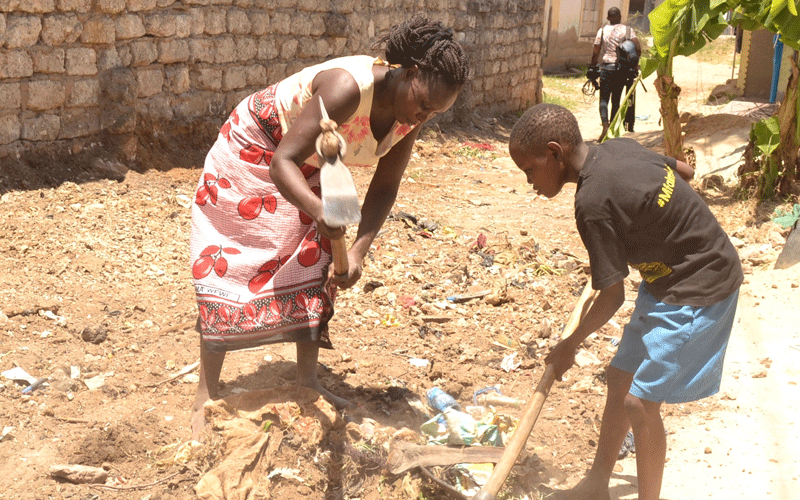Lockdown widens rich and poor students gap
By Jasmine Atieno, April 29, 2020
Jasmine Atieno @sparkleMine
While the whole world turn to Internet connectivity to keep up with the changing times as a result of coronavirus pandemic, schools closure has in turn forced students, parents and teachers to adjust to new teaching methods.
While this might work out for others, it still proves to be a challenge.
Christopher Kinyua, a parent and resident of Diani, says so far, online learning has been going on quite fine.
“Where my daughter attends school, teachers have created a portal and shared link, password and username.
So we get assignments and post them back. It is not a challenge for me because my family is a bit computer literate.
We can afford Wi-Fi for now; desktops and laptops too. But my biggest worry is, what about other children out there whose parents cannot afford to have a laptop, leave alone Wi-Fi.
If only the government had done its duty — that is, availing laptops in schools, electricity in all areas and many more neglected issues, such times would be easier for all,” says the father of one.
For Jason Murimi, whose children are currently in Kirinyaga, the coordination of school work is flowing perfectly well, except it is an expensive endeavour.
“We are receiving learning materials via WhatsApp, which I have to forward to my wife since the children are upcountry with her.
She has to make sure she has enough data bundles to go through the learning material, and download it, which again has to be printed out at a cost.
These materials are only for revision, so again my wife has to be the teacher and mark the work, give corrections and guidance.
It is costly and also requires devotion from parents to be both teacher and parent while still trying to work from home,” shares Murimi.
Left out
While this might be manageable for parents who have sufficient connectivity, others have completely been left out.

This includes Gaspery Kabata, a parent whose daughter joined Form One this year.
“When schools were closed, my daughter who is a student at Ngala Memorial Secondary School, in Watamu had to go to my sister’s house in Watamu since it is closer. Since then, I have not received any communication from the school.
This is despite the fact that I paid a full year school fees. If there was work being sent to me, I would easily forward it to the aunty.
My daughter is just doing her own revision work for now,” says the frustrated parent.
Situations for students at Kaa Chonjo Primary School in Tudor Mworoto are even worse as their school teacher Johnson Kibuga shares.
This school is located in the slums where most parents are too poor to even afford smartphones, which can connect to the Internet.
“I can’t lie and say it is well. The pronouncement of school closures came when nobody was prepared. Many parents here don’t have digital phones. It is only a few who have a basic phone just for communication purpose.
A lot of our students come from disadvantaged backgrounds. So we can’t even send them the assignments except for a few who have connected to the teachers and asked for some materials.
Here it is even hard for the parents to make those phone calls regarding assignments,” he says.
Tedious exercise
This only means that the gap between the able and the poor has been greatly widened with the closure of classrooms and opening of e-classes and sessions.
Lucy Ogutu, a teacher at Hands of Love Educational Centre in Nairobi says the school provides education to economically underprivileged children in Kariobangi and Korogocho slums.
She notes the closure of school due to the ongoing Covid-19 contagion makes it difficult for them to continue educating children particularly because, unlike those in more economically stable demographics, they do not have access to online learning.
However, despite this difficulties, the school director created a WhatsApp group so they can continue to provide guidance and educate children.
“We are able to reach 45 per cent of the parents. To complement this, we are making workbooks that we have to deliver to families and we continue to work together to facilitate the children’s ongoing education,” she says.
“As a teacher I have been working from home preparing worksheets and speaking on the phone to parents and the learners.
It has been essential to make this on-the-phone follow up to make sure that our children do the work that we post on the group or their parents pick from the school office.
I am glad to say that despite the process being tedious and expensive it is working — as best as it can under the current circumstances – I am able to reach all learners in my class and achieve my teaching goals,” she concludes.